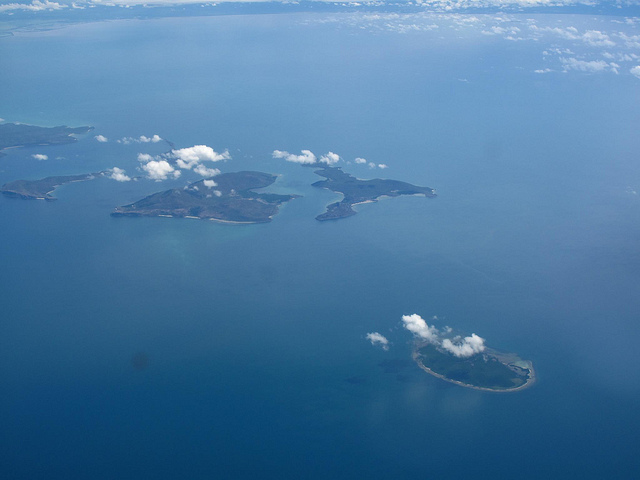
A tuberculosis epidemic is on Australia’s doorstep. As of January 2016, Papua New Guinea’s island of Daru—located in the Torres Strait—has the highest rate of drug-resistant tuberculosis (TB) in the world, with more than 160 of the 20,000 people living on the island infected with the airborne disease. PNG is one of only 14 countries in the world to feature on all three of the World Health Organisation’s high burden country lists on TB, due to its high incidences of TB, TB/HIV and multi-drug resistance TB. In 2014, there were nearly 26,000 new TB case notifications in the country. A leading authority on the infectious disease—which can be spread without any symptoms—recently described the tuberculosis outbreak as ‘a health threat for Australia and…a health threat for the entire Pacific region’.
To put the issue into context for Australia, the distance between Cape York in the far north of Queensland and PNG at the narrowest point is approximately 150 kilometres, with Saibai Island a mere four kilometres from the PNG mainland. The proximity of Australia to PNG across the Strait makes it a critical area for border security. While there are a number of arrangements in place to protect Australia’s sovereignty and biosecurity, the Torres Strait represents a strategic challenge for Australian policymakers. Australia can’t afford to take for granted the current security measures in place due to the unique nature of the border and associated threats, and must give the Torres Strait region the attention it requires.
The Torres Strait has traditionally facilitated the free movement of people between both countries, with Australia and PNG signing the ‘Torres Strait Treaty’ in 1978 to officially delineate the border and protect traditional movements. PNG citizens from 13 nominated villages under the Treaty have free movement privileges and tens of thousands take the opportunity to travel to Australia each year.
The 2015 Human Development Index ranked PNG 158th in the world (out of 188). Australia is ranked 2nd. The Torres Strait links those two asymmetric countries—at least when compared on a human development index—and facilitates the free movement of people. That poses a considerable biosecurity challenge to Australia.
The federal and Queensland state governments previously funded medical services for PNG nationals visiting the Torres Strait Islands. But in 2011, both governments stopped funding those services and began closing down TB clinics in the Strait. Instead, both governments’ policies are now focused on strengthening the health system on the PNG side of the border to minimise the need for health services located in Australia.
That’s a sensible policy, but TB remains a prevalent issue in PNG and should draw more concern in Australia than it currently does.
To put the epidemic in perspective, ABC reporter Jo Chandler recently noted that Ebola, a virus that was declared an ‘international emergency’ by the World Health Organisation in 2014, has killed around 11,000 people in the last three years. By comparison, TB has killed around 9,000 people in PNG in the same time frame—yet the TB epidemic in PNG hasn’t received a fraction of the same attention here in Australia where it poses a major health risk to our nearest neighbour.
Add to those biosecurity hazards the discovery in late March of two Vietnamese fishing vessels illegally fishing in waters near the Lockhart River region in far north Queensland. Lockhart River Mayor Wayne Butcher said the incident was ‘frightening in one sense [that] they can sneak through the Torres Strait’ and along the northeast coast of Queensland.
The incident shows how the Torres Strait can be used as a gateway for unauthorised arrivals into Australia’s sovereign waters. This is an ongoing issue. In June 2015, three Indian men were arrested trying to boat from PNG to Australia via the Torres Strait. Then in August 2015, PNG officials seized a boat near the Australian border in which eight men were identified as victims of human trafficking. As Mayor Fred Gela of the Torres Strait Island Regional Council said at the time, the ‘Torres Strait is unsecured and abandoned…we have a porous border, our communities are in a very vulnerable position’.
With all that said, there are a number of border protection measures in place to protect Australia from those traditional border security challenges. For example, the Maritime Border Command within the Australian Border Force (ABF) is Australia’s lead civil maritime security authority. In December, the ABF bolstered its maritime security presence in the Torres Strait by permanently stationing ABF Cutter Roebuck Bay, a Bay-class patrol vessel, in the region. The increased presence immediately paid off when ABFC Roebuck and ABFC Cape St. George apprehended three PNG fishing vessels operating in Australia’s exclusive economic zone in the same week.
Despite this, federal government MP Warren Entsch, whose electorate covers north Queensland and the Torres Strait, has called for a greater government presence in the Strait. While there are currently Australian customs and quarantine staff stationed on Saibai Island, Entsch has pushed for the development of a multi-agency facility that could house additional federal and state staff, including health workers, police and immigration officers.
The Torres Strait presents Australia with a number of border security issues. Traditional sovereignty concerns about irregular and unauthorised movements into Australian waters will continue to pose a challenge but are also likely to receive adequate attention; boats and unauthorised movements generally attract consideration from Canberra. But the biosecurity and health challenges posed by PNG’s TB epidemic don’t receive the same concern from a border security perspective. And it should: health considerations can affect people movement and the stability of our northern neighbour is important to maintaining Australia’s border security. Australia can’t risk becoming complacent on border security in the Torres Strait.

